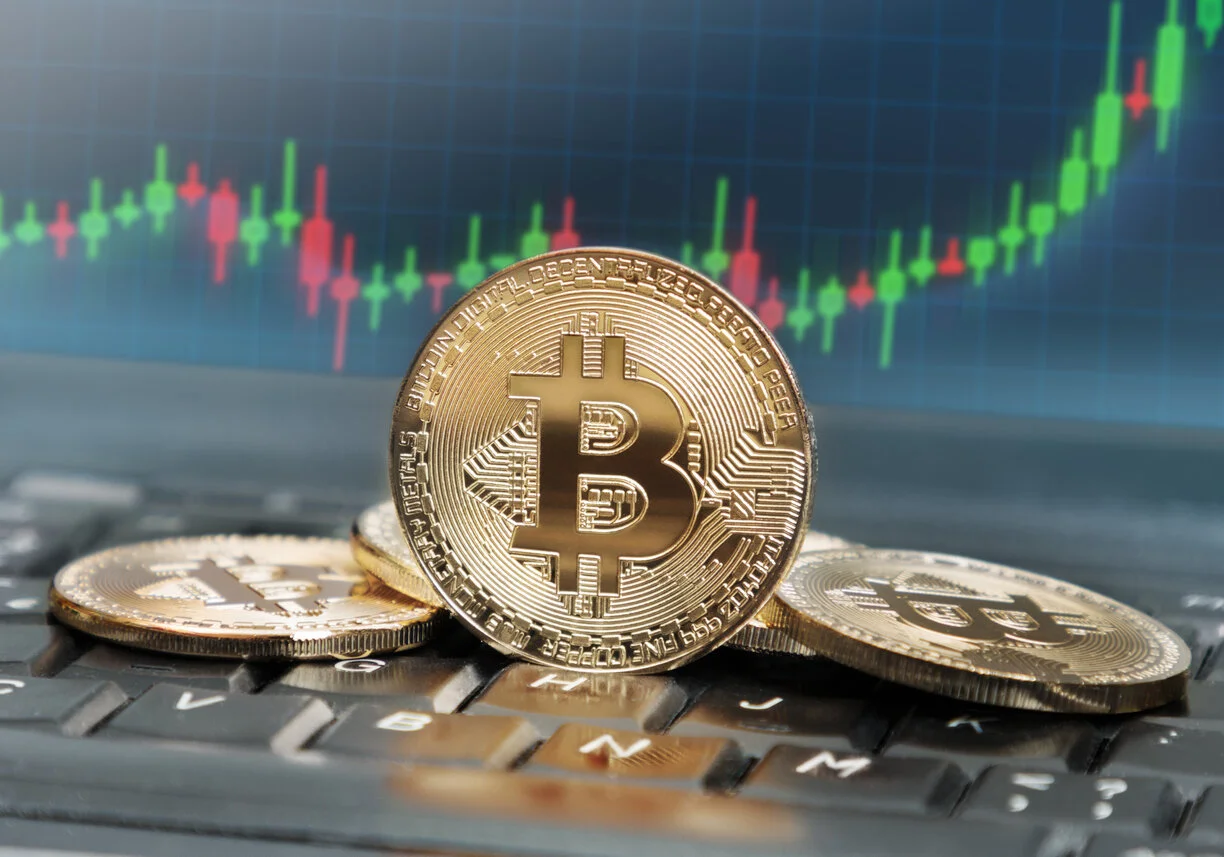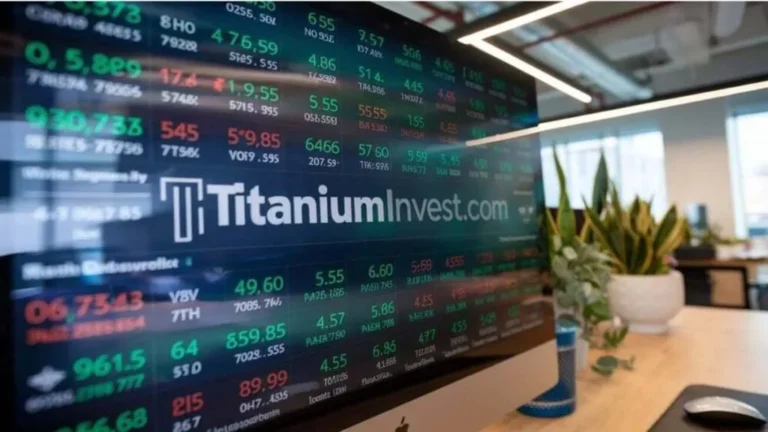Impact of Bitcoin On The Global Economy – Impacts
Impact of Bitcoin On The Global Economy Imagine a currency that exists only online, free from banks or governments, yet it’s worth over $1.4 trillion in 2025. That’s Bitcoin, the world’s first cryptocurrency, launched in 2009 by the mysterious Satoshi Nakamoto. From a niche experiment to a global financial force, Bitcoin has sparked debates, disrupted markets, and reshaped economies. Its decentralized nature—powered by blockchain technology—has changed how we view money, trade, and trust in financial systems.
As explored in https://blog.pcscomputo.com/el-impacto-de-bitcoin-en-la-economia-global, Bitcoin’s influence spans far beyond finance. It’s driving innovation, challenging traditional systems, and raising critical questions about sustainability and regulation. This article dives into Bitcoin’s transformative effects on the global economy, offering clear insights and real-world examples. Whether you’re a crypto enthusiast or a curious newcomer, let’s explore how Bitcoin is rewriting the rules of money.
https://blog.pcscomputo.com/el-impacto-de-bitcoin-en-la-economia-global Role in Transforming Global Finance
The Rise of Decentralized Finance
Bitcoin operates without banks or middlemen. It’s a peer-to-peer system where transactions are verified by a global network of computers using blockchain technology. This decentralized ledger ensures every transaction is transparent, secure, and immutable. Unlike traditional banking, which relies on centralized institutions, Bitcoin empowers individuals to control their money directly.
This shift has birthed decentralized finance (DeFi), a movement that’s redefining financial services. DeFi platforms, built on blockchain, offer loans, savings, and investments without intermediaries. By 2025, DeFi’s total value locked exceeds $150 billion, with Bitcoin as its foundation. For example, platforms like Aave allow users to lend or borrow crypto instantly, bypassing traditional credit checks.
Impact of Bitcoin On The Global Economy
Bitcoin is often called “digital gold” for good reason. Its fixed supply of 21 million coins makes it a hedge against inflation, especially in unstable economies. In Venezuela, where hyperinflation hit 1.7 million percent in 2018, citizens turned to Bitcoin to preserve wealth. A single Bitcoin could buy essentials when bolivars became worthless.
Investors are noticing. In 2024, Bitcoin exchange-traded funds (ETFs) gained traction, with firms like BlackRock offering crypto exposure to mainstream portfolios. Bitcoin’s price surged past $72,000 in March 2024, reflecting growing trust. Unlike fiat currencies, which central banks can print endlessly, Bitcoin’s scarcity appeals to those seeking stability.
Impact on Traditional Financial Systems
Bitcoin challenges the status quo. Central banks, like the Federal Reserve, control money supply, but Bitcoin operates independently. This has sparked a rethink of monetary policy. In response, over 80 countries, including China and the EU, are developing central bank digital currencies (CBDCs) to compete with crypto’s efficiency.
Bitcoin also shifts public perception. Once dismissed as a fad, it’s now a legitimate asset class. A 2023 survey by Pew Research found 17% of Americans own cryptocurrency, up from 1% in 2015. This growing acceptance pressures banks to integrate crypto services, like custody or trading, to stay relevant.
Bitcoin’s Influence on Global Trade and Commerce
Streamlining International Transactions
Cross-border payments are slow and costly. Traditional systems, like SWIFT, can take days and charge high fees. Bitcoin changes that. Transactions settle in minutes, often for less than $1. In 2024, global remittances reached $857 billion, and Bitcoin’s low-cost transfers are gaining ground, especially in regions like Southeast Asia.
For example, migrant workers in the Philippines use Bitcoin to send money home instantly. Platforms like BitPesa in Africa facilitate trade by converting Bitcoin to local currencies, bypassing expensive intermediaries. This efficiency boosts small businesses and individuals alike.
Adoption by Businesses
Big brands are embracing https://blog.pcscomputo.com/el-impacto-de-bitcoin-en-la-economia-global. Microsoft accepts it for Xbox purchases, while Tesla briefly did in 2021 before resuming in 2024. Smaller businesses, like coffee shops in El Salvador, where Bitcoin is legal tender, also adopt it. Blockchain’s transparency helps too. Companies like Walmart use it to track supply chains, ensuring ethical sourcing and reducing fraud.
This trend is growing. A 2024 Deloitte survey found 75% of retailers plan to accept crypto by 2026. Bitcoin’s integration into payment systems like Strike or BitPay makes it seamless, bridging crypto and traditional commerce.
Economic Inclusion in Developing Economies
Globally, 1.7 billion people lack bank accounts, per the World Bank. Bitcoin offers a solution. With just a smartphone and internet, anyone can access the Bitcoin economy. In sub-Saharan Africa, where banking infrastructure is limited, Bitcoin wallets like Chivo in El Salvador empower users to save, spend, and invest.
In Nigeria, where 38% of the population is unbanked, Bitcoin trading surged 1,500% from 2017 to 2023. Young entrepreneurs use it to bypass currency controls, fostering economic growth. Bitcoin’s borderless nature makes it a lifeline for the underserved.
Environmental Concerns and Sustainability Challenges
The Energy Consumption Debate
Bitcoin mining, the process of validating transactions, is energy-intensive. In 2021, it consumed 173.42 terawatt-hours annually, comparable to Norway’s energy use. Critics argue this strains power grids and increases carbon emissions, especially in regions reliant on coal, like parts of China.
However, context matters. Gold mining emits 131 million metric tons of CO2 annually, far more than Bitcoin’s estimated 90 million tons in 2023. Still, the environmental impact is real, and public perception often amplifies the criticism. Secondary keyword: Bitcoin environmental concerns.
Efforts Toward Sustainable Mining
The industry is adapting. By 2023, 54% of U.S. Bitcoin mining used fossil fuels, but miners are shifting to renewables. Companies like Bitfarms in Canada use hydroelectric power, while others tap solar or wind. In Texas, miners partner with grid operators to balance energy loads, using excess renewable energy.
Innovations are emerging. Some miners capture methane from landfills, reducing greenhouse gases while powering rigs. Others recycle heat from mining for community heating, as seen in Norway. These efforts show Bitcoin can align with sustainability goals.
Electronic Waste and Hardware Lifespan
Bitcoin mining relies on specialized hardware, like ASICs, which generates e-waste. Estimates suggest 2,300–30,000 tonnes annually, less than the 50 million tonnes from global electronics. Recent studies show ASIC lifespans are improving, now lasting 4–5 years, reducing waste.
The industry is exploring recycling programs and modular hardware to minimize impact. Compared to consumer electronics, Bitcoin’s e-waste footprint is small but remains a concern for critics.
Regulatory Challenges and Market Stability
Global Regulatory Landscape
Bitcoin’s decentralized nature complicates regulation. The EU’s Markets in Crypto-Assets (MiCA) framework, effective 2024, sets clear rules, while the U.S. lags with fragmented policies. Concerns about illicit use persist, though Chainalysis reports only 0.34% of crypto transactions in 2023 were linked to crime, down from 2% in 2019.
Balanced regulation is key. Overregulation risks stifling innovation, while underregulation invites fraud. Secondary keyword: Bitcoin regulation.
Market Volatility and Speculative Bubbles
Bitcoin’s price swings are legendary. It hit $69,000 in 2021, crashed to $17,000 in 2022, and rebounded to $72,000 in 2024. A 2023 study in Finance Research Letters found Bitcoin defies the Efficient Market Hypothesis, driven by speculation rather than fundamentals.
Yet volatility is decreasing. As institutional investors enter, Bitcoin’s market matures. Stablecoin integration and derivatives like futures also dampen swings, making it more reliable for transactions.
Must Read About: Profitable Intraday Trading Advice 66unblockedgames.com
Future of Regulation
Clearer rules could unlock Bitcoin’s potential. The SEC’s approval of Bitcoin ETFs in 2024 boosted institutional adoption. Meanwhile, CBDCs may coexist with https://blog.pcscomputo.com/el-impacto-de-bitcoin-en-la-economia-global, offering governments control while preserving crypto’s benefits. By 2026, analysts predict 60% of countries will have CBDC pilots, shaping Bitcoin’s role.
Future of Bitcoin in the Global Economy
Bitcoin’s future is bright but complex. Will it become a mainstream currency? Likely not soon, given volatility and regulatory hurdles. However, its role in DeFi and NFTs, both powered by blockchain, is undeniable. DeFi’s growth to $150 billion by 2025 signals a shift toward decentralized systems.
Sustainability efforts and clearer regulations will drive adoption. Bitcoin could complement CBDCs, offering a decentralized alternative. As blockchain technology evolves, its applications in finance, supply chains, and beyond will cement Bitcoin’s place in the global economy. Secondary keyword: Blockchain technology in global finance.
Bitcoin has transformed the global economy. It’s empowered individuals, streamlined trade, and challenged traditional finance. Yet, it faces hurdles: energy use, e-waste, and regulatory uncertainty. As https://blog.pcscomputo.com/el-impacto-de-bitcoin-en-la-economia-global highlights, Bitcoin’s journey is far from over. With sustainable practices and balanced policies, it could redefine money in a digital age. The question isn’t whether Bitcoin will shape the future—it’s how.
Impact of Bitcoin on the Global Economy
1. How does Bitcoin’s limited supply affect its value over time?
Bitcoin’s cap of 21 million coins creates scarcity, potentially increasing value as demand grows. Unlike fiat currencies, which can be printed, this fixed supply mimics rare assets like gold, driving long-term investor interest.
2. Can Bitcoin help stabilize economies during geopolitical conflicts?
Bitcoin’s decentralized nature allows it to function in regions with disrupted banking systems, like during conflicts. For instance, it’s been used in war-torn areas to transfer funds when traditional systems fail.
3. What role does Bitcoin play in reducing financial fraud?
Blockchain’s transparent ledger records every transaction, making fraud harder. Unlike cash or credit systems, Bitcoin transactions are traceable, reducing risks like double-spending or identity theft.
4. How does Bitcoin impact job creation in the tech sector?
The crypto industry has spurred jobs in blockchain development, cybersecurity, and fintech. In 2024, LinkedIn reported a 20% rise in blockchain-related job postings, driven by Bitcoin’s growth.
5. Is Bitcoin accessible to people with limited tech knowledge?
Yes, user-friendly wallets like Coinbase simplify Bitcoin use. Basic transactions require only a smartphone app, making it accessible even to those with minimal tech skills.
6. How does Bitcoin influence monetary policy debates?
Bitcoin’s independence from central banks sparks discussions on monetary control. Economists argue it could push governments to rethink inflation strategies and fiscal policies.
7. Can Bitcoin support microtransactions in developing countries?
Bitcoin’s low fees enable microtransactions, like paying cents for digital content. In places like India, this supports small-scale entrepreneurs selling services globally.
8. What are the tax implications of using Bitcoin globally?
Tax policies vary. In the U.S., Bitcoin is taxed as property, with capital gains applied. Other countries, like Germany, treat it differently, impacting its adoption.
9. How does Bitcoin affect currency exchange markets?
Bitcoin’s use in cross-border trade reduces reliance on forex markets. Its volatility, however, can disrupt traditional currency pairs, influencing exchange rate dynamics.
10. Could Bitcoin replace traditional savings accounts?
While not a direct replacement, Bitcoin’s potential for appreciation attracts savers. However, its volatility and lack of interest like bank accounts limit its role as a savings tool.







